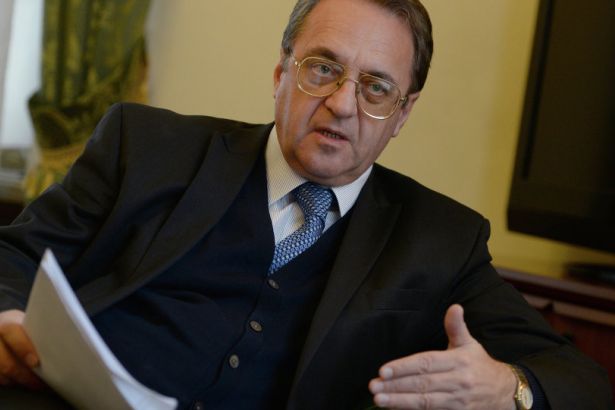Syrian de-escalation zones should not become Turkey's, US' areas of influence - Moscow

De-escalation zones in Syria should not turn into the areas of influence of other states, Russian Deputy Foreign Minister Mikhail Bogdanov said on Monday, stressing that the safe zones were a temporary measure.
"When we worked out the concept of de-escalation zones with three guarantor-states and some other sides with an observer status, I mean Jordan, the United States and the United Nations ... it was stressed and it is said in the documents, that de-escalation zones are temporary. One should not allow the de-escalation zones to turn into areas of influence of foreign states, third parties, I mean both the US and Turkish sides, and others," Bogdanov said in an interview with the Rossiya-24 broadcaster.
DAMASCUS: TURKEY USES ASTANA AGREEMENT AS COVER TO INVADE SYRIA
Ankara does not implement the Astana agreements on the settlement of the Syrian crisis but uses it as an excuse "to invade the country," Bouthaina Shaaban, an adviser to the Syrian president, said earlier in the day.
"Turkey facilitated the arrival of all these mercenaries and when it felt that these terrorist mercenaries were loosing the ground, it invaded the Syrian territory in full cooperation with terrorists. Turkey invaded our land in full violation of the international law and used Astana Agreement as a cover for invading the Syrian territory on unexpected pretext," Shaaban said at the Valdai Discussion Club's Middle East Conference.
On Monday, Moscow began hosting a two-day conference covering a whole range of Middle Eastern issues, which is being attended by high-ranking officials, such as Russian Foreign Minister Sergey Lavrov and his Iranian counterpart Mohammad Javad Zarif.
DE-ESCALATION ZONES
The Astana talks on Syrian reconciliation have resulted in the creation of four de-escalation zones in northwestern Idlib province and parts of neighbouring Latakia, Hama and Aleppo provinces, the north of the central Homs province; Eastern Ghouta near Damascus and certain parts in the country's southern Daraa and Quneitra provinces.
In September, the three guarantors, namely, Russia, Iran, and Turkey, finalized the agreement on all of the four zones during the sixth round of the Astana talks, for an initial period of six months with the possibility of extension. The period expires in March.



